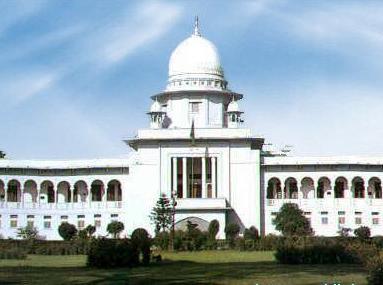
Dhaka High Court rejects petition to scrap Islam as state religion
The bench of Justice Naima Haider Justice Quazi Reza-Ul Hoque and Justice Ashraful Kamal passed the order in the afternoon.
In its order the High Court said the petitioners do not have the right to file the writ petition the Dhaka Tribune reported.
After the passage of the Eighth Amendment Bill on June 7 1988 15 noted personalities had filed a public interest litigation challenging the state religion provision. Many of them are now dead.
The matter was absent from discussion tables until August 1 last year when a Supreme Court lawyer Samendra Nath Goswami filed another petition with the High Court questioning how Islam could still be acknowledged as the state religion despite revival of “secularism” as the state policy under a 2011 amendment to the Constitution.
Goswami had himself moved the petition which the bench of Justice Mohammad Emdadul Haque and Justice Muhammad Khurshid Alam Sarkar rejected outright on September 7 after a brief hearing.
On February 29 Chief Justice Surendra Kumar Sinha formed a new three-member bench to hear the 1988 petition following a prayer submitted on behalf of the petitioners.
Monday’s ruling came as the country’s largest Islamist party Jamaat-e-Islami called a nationwide strike to protest the legal move. Over 90% of the population in Bangladesh is Muslim with Hindus and Buddhists being the main minorities.
Jamaat-e-Islami had viewed the case as a “deep-rooted conspiracy” against religion.
“Bangladesh is a 90% Muslim nation” said a statement from the group whose top leaders have been tried and executed by Prime Minister Sheikh Hasina’s secular government for war crimes. “The people will never accept any government move to remove Islam as the state religion from the constitution in an effort to please a handful of anti-religion persons.”
Bangladesh was declared officially secular after the 1971 war of independence from Pakistan.
But in 1988 the then-military ruler elevated Islam to the state religion of the South Asian country in an effort to consolidate power.
The court’s decision to review Islam as state religion came amid concern over recent killings of foreigners and locals belonging to minority groups by extremists and efforts by Prime Minister Sheikh Hazina's government to safeguard secular views protect lives and eliminate terrorists.

Legal Disclaimer:
MENAFN provides the
information “as is” without warranty of any kind. We do not accept
any responsibility or liability for the accuracy, content, images,
videos, licenses, completeness, legality, or reliability of the information
contained in this article. If you have any complaints or copyright
issues related to this article, kindly contact the provider above.


















Comments
No comment